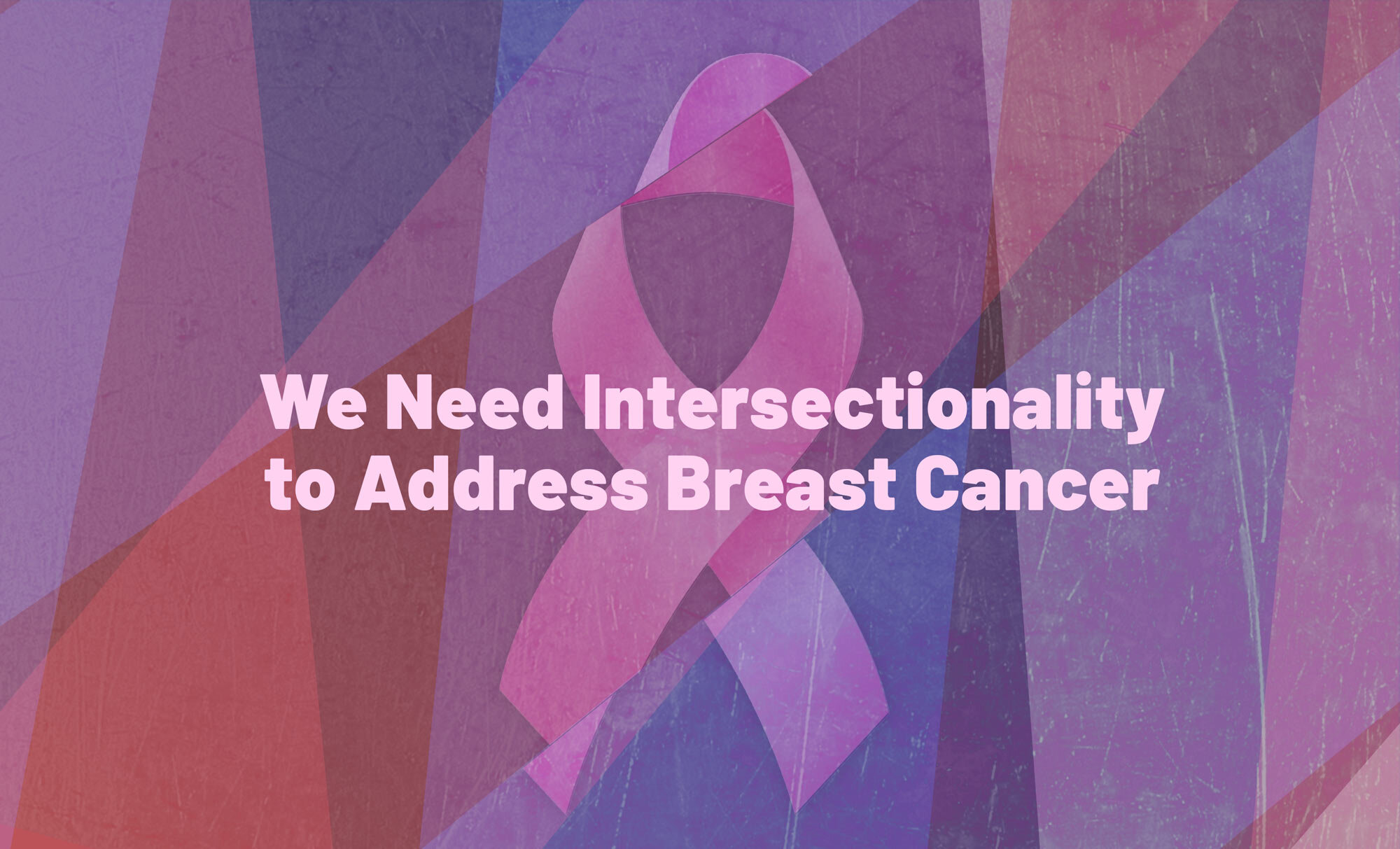Written By Anu Gupta
We Need Intersectionality to Address Breast Cancer

October is Breast Cancer Awareness Month, a time to reflect on the prevalence of this disease and recommit ourselves to working toward a cure. Breast cancer is a hugely pervasive illness; about 1 in 8 women will develop invasive breast cancer over the course of their lifetime (and in fact, people of all genders are impacted by the disease). And breast cancer has the second-highest death rate of cancers in the United States for women, after lung cancer. While significant strides have been made in researching, treating, and preventing the disease, we still have a very long way to go.
Unfortunately, and as is the case for so many ailments in our nation, breast cancer does not affect everyone equally. The incidence and mortality rates of breast cancer for Black women are ridiculously high.
Black women are 42% more likely to die of breast cancer than white women
, according to the American Cancer Society. Advances in mammography technology mean that detection of breast cancer has increased for women of all races in the past few decades. But while incidences among white women have recently stabilized, the rate of diagnosis in Black women is growing. And economic disparities mean that even after a cancer diagnosis and treatment, it can take Black women longer than other women to get back on their feet.
Why such stark disparities? There are a number of reasons, and they all point toward systemic racism.
Black women are more likely to face conscious or unconscious bias in healthcare, which can lead to a lower quality of care. This same discriminatory treatment can also lead Black women to avoid doctors completely, increasing the chance that they won’t be diagnosed in time for necessary treatment. This kind of double standard is not new; research shows that some healthcare professionals actually believe Black individuals have less sensitive nerve endings — i.e. a higher pain tolerance — than white people.
There are factors at play outside of the doctor’s office, too. Diet-related diseases like obesity are majorly linked to breast cancer, and Black women are less likely to eat diets rich in fruits and vegetables and to get regular exercise than women of other races.
These disparities can also be linked directly to our nation’s racial caste system, and the policies in place that have kept Black communities as a subordinated group.
The historical practice of redlining, or blocking Black families from living in certain neighborhoods, affects Black communities’ access to nutritious foods, grocery stores, and local fruits and vegetables. The same goes for access to safe outdoor or indoor spaces for exercise, as well as the financial stability that allows for free time in which to exercise at all; not all communities have equal access, and Black and brown communities often face the harshest outcomes as a result.
This may feel like an overwhelming problem to solve, and it is. But that doesn’t mean we cannot take meaningful steps in order to improve the system.
Ending unconscious bias in healthcare, trusting patients to tell their providers what they are feeling, and refusing to ignore or minimize symptoms can be game-changing in allowing Black women to feel seen and heard at the doctor’s office — and to receive better care as a result.
In fact, normalizing these practices in healthcare has the potential to benefit everyone, radicalizing how we approach healthcare and allowing for more people to get the care they need.
I talked often about intersectionality, the theory coined by Kimberlé Crenshaw which posits that the intersections of our identities — race, gender, ability, sexual orientation, socioeconomic status, etc. — affect how we experience the world. Awareness of intersectionality is exactly what we need to overcome our national breast cancer crisis.
If we can center the experiences of Black women in care for breast cancer — and all other health issues — we can make changes to the field that will impact all patients in the years to come.
These first few steps are crucial in bringing about sweeping systemic change.
If you or someone you know works in healthcare, I encourage you to check out Breaking Bias in Healthcare, our signature course on transforming unconscious bias in healthcare settings. Healthcare is a crucial environment where ending bias and discrimination can and will literally save lives. And the steps we take as individuals can have a significant impact on our collective humanity.
This month, I hope you will take some time to reflect on the ways breast cancer has impacted you, your loved ones, and your communities, and how you can take action to ensure everyone has equal access to safe, affirming effective healthcare.
